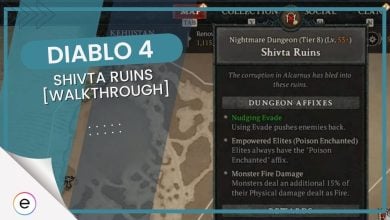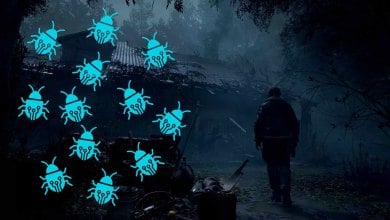Story Highlights
- Shadow of the Road blends steampunk and Japanese mythology in a war-torn alternate history setting.
- The game avoids a single protagonist structure, letting players control multiple characters with their own beliefs and bonds.
We interviewed the game’s Writer and Narrative Designer via email.
Shadow of the Road throws players into a war-torn, myth-infused version of 19th-century Japan where ancient spirits, steampunk tech, and foreign influence collide. You’ll guide a shifting cast of characters through a world shaped by the British East Nippon Company’s brutal technology, spiritual forces like yōkai and kami, and the ongoing struggle between the Emperor and the Shogunate.
The team mixes tactical RPG combat with layered character progression, relationship systems, and narrative choices that actually matter. Drawing inspiration from Japanese mythology, historical conflicts, and classic strategy games, they aim to craft a deeply reactive and emotionally charged experience. To understand more about the game’s world, we spoke with Dante Pragier, the Writer & Narrative Designer of Shadow of the Road, via an email interview.

The ENC might be seen as a ‘catalyst’ – amplifying the existing conflict between Shōgun and Emperor, and empowering terrifying new technologies of war. For generations, the strength of the Emperor and shogunate forces have been locked in a delicate power struggle – and so this technology can tip the balance, to devastating effect.
Of course, our story is far removed from the historical reality of late Edo-period Japan. That said, it’s still fascinating to consider the real-life events of the Boshin War, and the part Western influences played in it.
Finally – a piece of trivia! The initial conceptualization of the ENC was inspired by the depiction of the East India Company in the television series Taboo.
Yes! The ENC and its steampunk technology are only one part of our alternate version of Japan. In Shadow of the Road, we bring to life a rich world of mythology and lore, including the yōkai and the great kami.
This starts from a “What if…” – in our case: “What if the rich mythological pantheon of Japan spirits and deities roamed the lands? How would they influence Japan’s history? How would they interact with ordinary people? What would their goals be?” And, of course, “which would prove mightier – spiritual or technological force?”
While I don’t want to spoil any specific details in terms of stories, characters, and environments, suffice it to say that the mythology is crucial to all of it.
That said, our version of Japan deviates from history, so expect to find our own ‘twist’ or interpretation on many of these. As fantastical as our world may seem, at times the stories we draw from are even more surprising or wild – there are occasions where we’ve even ‘toned down’ some of these for a more grounded approach!
Good question! At first, there appears to be a ‘clash’ – it’s certainly surprising to see a metallic construction embedded in a historical setting, especially if mythological creatures are thrown into the mix…
Behind the scenes, Marek Oleksiak, our founder and CEO, was inspired by some of his most memorable experiences in gaming, such as the Guardian Forces of Final Fantasy VIII and the wanzer (mecha) of Front Mission. These different elements led to our fundamental concept: the idea of worlds colliding.
The next stage is allowing these elements to work together, not compete with one another (which could easily feel jarring). Of course, this begins with a great deal of research. Reading books, researching the Shintō pantheon, and studying historical events. I mentioned that question we constantly ask ourselves: “What if…” – this is really important to the narrative process. At times, this means leaning into the chaos, accepting the fantastical approach, and asking ourselves what would happen if these worlds collided.
So, by taking great care with building an authentic-feeling world and allowing for “What if…”, we bring these worlds together. Through this process, our story fleshes out, and the various puzzle pieces start to organically fit together in their own strange way.

At heart, we are gamers obsessed with great tactical games and combat systems. We play as much as we can, and we’re constantly gushing about our favourite systems and features. I think it’s really important to hold onto this, and to ask ourselves – “Is this fun? How excited would I be to use this feature?”
To us, the elements that make for a great turn-based system include encouraging a variety of approaches to combat, opportunities to exploit action economy, combining multiple effects in satisfying ways, and reshaping the timeline. Plus, of course, when we’ve enacted our careful strategies, we’ll be rewarded with awesome abilities to unleash havoc on the battlefield!
So, while unfortunately I can’t divulge too many features of the system specifically, we hope to leave our mark on the turn-based space and leave players excited for the next combat, and to explore their newfound capabilities.
As you may have seen in the alpha playtest, there are a couple of narrative character progression systems:
- Paths – Each character has their own path, which might be described as their ‘moral crossroads’, constantly shifting as they make decisions and explore the world.
- Relationships – In Shadow of the Road, there is no ‘main character’. Instead, the player shifts between the perspectives of party members, each with their own ideology and personality. The relations between individual party members are constantly shifting, too.
In addition to this, there are also our combat progression systems, including the skill tree, perks, and itemization. Over the course of the game, the player will be building each character in the ways they deem fit, from both a narrative and combat perspective.
While we’re not quite ready to reveal the nuances of these systems, to address your second question, these systems (narrative + combat) will intertwine in various ways. Or, to put it another way, we do not consider a character’s narrative development to be entirely ‘separate’ from their tactical development.
From a combat perspective, the environment is crucial. Sometimes, the player will be able to set themselves up in advantageous positions. Other times, they’ll be on the back foot and must find creative ways to even the odds.
Luckily, there will be several ways to affect the environment. This can be destructive or generative in nature. Plus, they may discover alternate means of mobility to surpass obstacles. In addition, as you mentioned, certain story events and key decisions may affect the nature of combat encounters. Environments, allegiances, and other variables may be affected in this way.
Without revealing too much, the player may also be confronted with powerful enemies later in their journey that are able to affect the battlefield in surprising ways. Careful strategy will be required to overcome these foes.

The characters in our story are not blank slates, ready to be defined. They have been influenced by the events of their life, the secrets in their past, and the pains they have endured. In each case, our characters have survived many battles before we first encounter them, and their past experiences are shrouded in mystery. Through their journey, the player may uncover these secrets and begin to understand their natures and perspectives better.
So, while the player cannot return to the past and reforge their backstories, they can certainly affect the future. This is fundamental to our Paths system – the idea that each character stands at a crossroads, and can reshape their destinies through the decisions they make.
I’ve elaborated on this a little in question 5, but to go into a bit more detail:
The characters in the player’s party are not just companions. In Shadow of the Road, there is no ‘main’ character, each one is central to the story, and each has their own personalities, conflicts, goals, backstories, and abilities. The player shifts perspective between them at various points.
This allows the player some degree of freedom when confronted with challenges. For example, they can decide which member is best-suited to resolve a particular issue or lead a particular dialogue.
These characters do not exist in isolation. Bonds (and conflict) can occur in their interrelationships with one another, which can affect the party in various ways, including combat and story events. And, yes, relationships and paths will have an effect on quests, the story, and its endings.
Totally agree – sophisticated morality, particularly when there is no ‘obvious’ answer, makes for a fascinating world. Some of my favourite stories use this to great effect, like Alan Moore’s Watchmen, or even the side quests in The Witcher III.
As a writer, I consider understanding each character’s sense of morality as essential. I subscribe to the idea that people tend not to consider themselves ‘villains’. Whether a bandit preying on travellers or a great leader making costly decisions for the future of Japan, in all cases, people make decisions that they feel are best at that moment.
The player must do this, too. The world of Shadow of the Road is perfectly suited for moral exploration. We see a Nippon that is wracked by war, with ordinary people struggling to survive, and fierce ideological battles over faith and technology, tradition and progress. During the story, the player will make many difficult decisions based on their limited understanding. There are not often obvious solutions, and these choices have consequences. The decisions may affect lives around them, or even the future of the country.

So much! We are endlessly grateful for players taking part in our alpha playtest, as well as the wealth of feedback they’ve provided. From our perspective, it’s been deeply motivating to take in their passionate, detailed responses.
And beyond the direct responses, one of the most valuable insights we get is through the perspective of a ‘fresh set of eyes’. Watching how players navigate dialogues, approach combat, and explore the world helps us uncover aspects that we can’t see – when we’ve worked on a level for a long time, it’s easy for certain elements to become invisible to us.
That said, there’s always a balance. Ultimately, there’s a story and experience that we’re seeking to create, and we don’t want to undermine this vision. So, we’re working with the feedback to support the vision.
We’re already hard at work addressing certain points touched on in the feedback. Some of these features were already planned, and others are being implemented as a direct consequence of feedback. While we can’t reveal specifics just yet, I can perhaps generally mention that we hear your points on ease of navigation, intuitiveness of combat, as a couple of small examples.
I think it’s been quite comprehensive. Thank you for the questions and your time!
I’ll just finish things up with a bit of gratitude:
Thank you so much to Owlcat for their ongoing invaluable guidance, and to every single player who’s taken part in our alpha playtest. Your passion and response have been inspiring.

Shadow of the Road is a turn-based tactical RPG developed by Another Angle Games and published by Owlcat Games. The title recently wrapped up its open alpha on PC via Steam, and full release plans are expected in the near future. We’d like to thank Dante Pragier for the interview and Sean Walsh for helping us.
Thanks! Do share your feedback with us. ⚡
How can we make this post better? Your help would be appreciated. ✍



